
Dr. Mohammad Al Faruque
University of California, Irvine
Mohammad Al Faruque joined the Department of Electrical Engineering and Computer Science in October 2012. Before joining UCI, he was a scientist at Siemens Corporate Research and Technology in Princeton, NJ. He received his B.Sc. degree in Computer Science and Engineering from Bangladesh University of Engineering and Technology (BUET) in 2002, and M.Sc. and Ph.D. degrees in Computer Science from Aachen Technical University and Karlsruhe Institute of Technology, Germany in 2004 and 2009, respectively. Al Faruque is the recipient of the IEEE CEDA Ernest S. Kuh Early Career Award 2016. He served as an Emulex career development chair from October 2012 until July 2015.

Dr. Aydin Aysu
North Carolina State University
Dr. Aysu received his B.S degree in microelectronics engineering with a mathematics minor and his M.S degree in electrical engineering from Sabanci University, Istanbul, Turkey. He received his Ph.D. degree in computer engineering from Virginia Tech. His research interests cover applied cryptography, computer architecture, and digital hardware design.
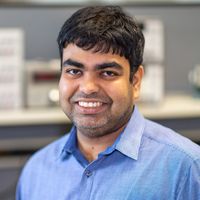
Dr. Kanad Basu
University of Texas at Dallas
Kanad Basu received his Ph.D. from the Department of Computer and Information Science and Engineering, University of Florida. His thesis was focused on improving signal observability for post-silicon validation. Post-Ph.D., Kanad worked in semiconductor companies IBM and Synopsys. He is now an Assistant Professor in the Department of Electrial & Computer Engineering at University of Texas at Dallas. His current research interests are Hardware and Systems security, and AI Hardware.
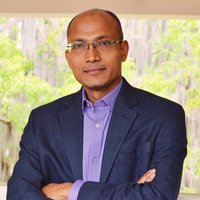
Dr. Swarup Bhunia
University of Florida
Dr. Swarup Bhunia received his B.E. (Hons.) from Jadavpur University, Kolkata, India, and the M.Tech. degree from the Indian Institute of Technology (IIT), Kharagpur. He received his Ph.D. from Purdue University, IN, USA, in 2005. Currently, Dr. Bhunia is the Director of the Warren B. Nelms Institute for the Connected World and Semmoto Endowed Professor of IoT in the department of Electrical and Computer Engineering at University of Florida, Gainesville, FL, USA.
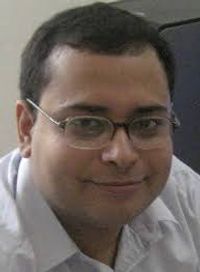
Dr. Rajat Subhra Chakraborty
Indian Institute of Technology, Kharagpur
Rajat Subhra Chakraborty is an Associate Professor in the Department of Computer Science and Engineering, Indian Institute of Technology, Kharagpur (IIT Kharagpur). He received his PhD in Computer Engineering at Case Western Reserve University. His primary area of research is Hardware Security, VLSI Design (especially low-power and robust design), Digital Watermarking and Digital Forensics.
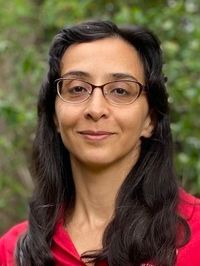
Dr. Azadeh Davoodi
University of Madison-Wisconsin
Azadeh Davoodi is Professor of Electrical and Computer Engineering at the University of Wisconsin Madison. Her primary research interests are in Electronic Design Automation (EDA) and debug of Integrated Circuits, and in Design Automation of Things, in general. Azadeh received her PhD degree in Electrical and Computer Engineering from the University of Maryland College Park where she was awarded a University of Maryland Graduate School Dissertation Fellowship.
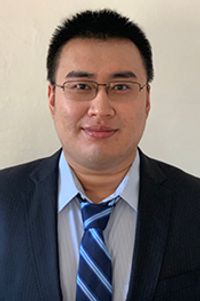
Dr. Xiaolong Guo
Kansas State University
Prior to joining the faculty at Kansas State University, Xiaolong Guo had been a research assistant in the Warren B. Nelms Institute for the Connected World, as well as the Florida Institute for Cyber Security (FICS), both at the University of Florida, from 2017 to 2019. He had also been a lab instructor in the electronic engineering department at the University of Central Florida, from 2013 to 2017. His general research interests are in the area of hardware security, third-party IP protection, formal verification and program analysis, as well as language-based security.

Dr. Aritra Hazra
Indian Institute of Technology, Kharagpur
Dr. Aritra Hazra is currently an Assistant Professor in the Dept. of Computer Science and Engineering (CSE) at Indian Institute of Technology (IIT) Kharagpur. He did his Bachelor of Engineering (B.E.) from the Dept. of CSE at Jadavpur University (Kolkata) in 2006. He received his Master of Science (M.S.) degree in 2010 and earned his Doctor of Philosophy (Ph.D.) degree in 2015, both from the Dept. of CSE at IIT Kharagpur. Dr. Hazra's research interest lies broadly on the area of formal methods, design validation and VLSI CAD.
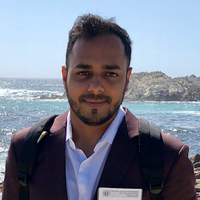
Dr. Tamzidul Hoque
University of Kansas
Tamzidul Hoque graduated with a Ph.D. degree in the Department of Electrical and Computer Engineering, University of Florida. He is now an Assistant Professor in the Department of Electrical Engineering and Computer Science at the University of Kansas. He received his B.Sc. degree in Electrical and Electronic Engineering from Ahsanullah University of Science and Technology, Dhaka in 2012. He received his M.S. degree in Electrical Engineering from the University of Toledo, OH in 2015. His research interest is focused on hardware security issues such as hardware Trojan detection.
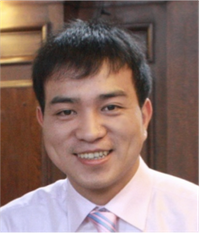
Dr. Yier Jin
University of Florida
Yier Jin is the Endowed IoT Term Professor in the Warren B. Nelms Institute for the Connected World and also an Associate Professor in the Department of Electrical and Computer Engineering (ECE) in the University of Florida (UF). Before joining UF, Dr. Jin was an assistant professor at UCF. He also spent 5 years in New Haven, Connecticut and received my PhD degree in Electrical Engineering from Yale University in 2012. Before that, he received my B.S. and M.S. degrees from Zhejiang University in 2005 and 2007, respectively. Dr. Jin’s research has mainly focused on developing methods for ensuring the security and trustworthiness of integrated circuits and systems and has contributed several key solutions in the area of trusted hardware.
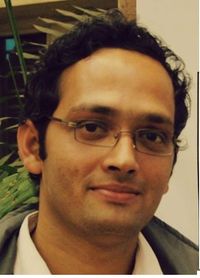
Dr. Chandan Karfa
Chandan Karfa received the M.S. and Ph.D. degrees in computer science and engineering from IIT Kharagpur, Kharagpur, India, in 2007 and 2011, respectively. He is currently working as an Assistant Professor with the Department of Computer Science and Engineering, IIT Guwahati, Guwahati, India. His research interests include formal verification of compiler transformations, high-level synthesis, and formal methods.
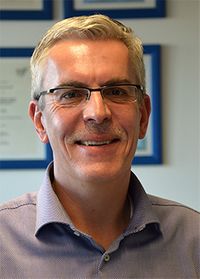
Dr. Rainer Laupers
RWTH Aachen University
Rainer Leupers received the M.Sc. and Ph.D. (Hons.) degrees in computer science from the University of Dortmund, Dortmund, Germany, in 1992 and 1997, respectively, where he was the Chief Engineer with the Embedded Systems Chair, from 1997 to 2001. He joined RWTH Aachen University, Germany, in 2002, as a Professor of Software for Systems on Silicon. His current research interests include software development tools, processor architectures, and electronic design automation for embedded systems, with an emphasis on compilers, application-specific instruction-set processors, and multiprocessor system-on-chip design tools.
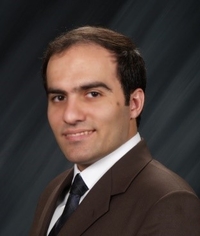
Dr. Hossein Miri Lavasani
Case Western Reserve University
Dr. Lavasani is an Assistant Professor at Case Western Reserve University. His research interests focus on high performance integrated circuits and systems, low power interface circuits for MEMS and sensors.
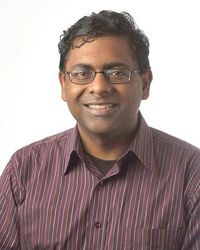
Dr. Soumyajit Mandal
University of Florida
Prof. Mandal completed his Ph.D in Electrical Engineering from MIT in 2009. He was a research scientist at Schlumberger-Doll Research (also located in Cambridge, MA) from 2010 - 2014. His research interests have varied over the years, but heave often been focused on novel analog circuits and applied physics. In July 2014, he joined the Department of EECS at Case Western Reserve University (CWRU) as an Assistant Professor. He is now an Associate Professor in the Department of Electrical and Computer Engineering Department at University of Florida.

Dr. Travis Meade
Travis Meade received the B.S. degree in mathematics from the University of Central Florida, Orlando, FL, USA, in 2012, and the Ph.D. degree in computer science from the University of Central Florida, under the supervision of S. Zhang and Y. Jin. His research focuses on intellectual property protection and integrated circuit reverse engineering for the sake of hardware security. He was a recipient of the Best Paper Award at ASPDAC’16 for his work in reverse engineering and also a recipient of the Best Paper Award at HOST’18.
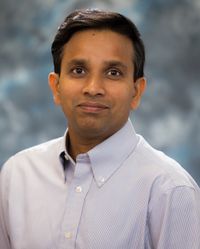
Dr. Prabhat Mishra
University of Florida
Prabhat Mishra is a Professor in the Department of Computer and Information Science and Engineering (CISE) at the University of Florida (UF), where he leads the CISE Embedded Systems Lab. He is a UF Preeminence Term Professor, the Research Director of Nelms Institute for the Connected World, and a member of the Florida Institute of Cybersecurity. His research interests include embedded and cyber-physical systems, hardware security and trust, reconfigurable architecture, energy-aware computing, formal verification, system-on-chip validation, post-silicon debug, machine learning, quantum computing and bioinformatics.

Dr. Debdeep Mukhopadhyay
Indian Institute of Technology, Kharagpur
Dr. Debdeep Mukhopadhyay is a Professor in the Department of Computer Science and Engineering at the Indian Institute of Technology, Kharagpur. He received the Ph.D. and M.S. degrees in Computer Science and Engineering at Indian Institute of Technology Kharagpur. His research interests include Hardware Security & Cryptography, Computer Architecture, Fault Tolerance, Hardware and Software Implementation of Complex Algorithms, Cellular Automata, Computing Systems, and Test and Verification
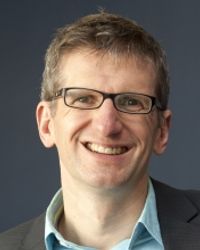
Dr. Christof Paar
Christof's research interests include highly efficient software and hardware realizations of cryptography, physical security, penetration or real-world systems, hardware security and cryptanalytical machines; he also works on real-world applications of embedded security for the Internet of Things, e.g. in cars, consumer devices and RFIDS.
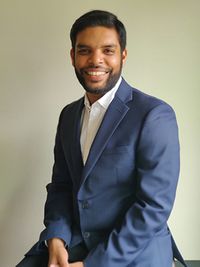
Dr. Jeyavijayan (JV) Rajendran
Texas A&M University
Jeyavijayan (JV) Rajendran received the Ph.D. degree from New York University, New York, NY, USA, in August 2015. He was an Assistant Professor with the University of Texas at Dallas, Richardson, TX, USA, from 2015 to 2017. He is an Assistant Professor with the Department of Electrical and Computer Engineering, Texas A&M University, College Station, TX, USA. His current research interests include hardware security and computer security.
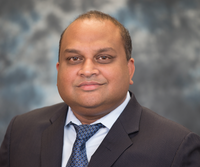
Dr. Sandip Ray
University of Florida
Dr. Ray is an Endowed IoT Term Professor at the Department of Electrical and Computer Engineering, University of Florida. Before joining University of Florida, Dr. Ray had a somewhat long stint in industrial research and R&D. Most recently, he was a Senior Principal Engineer at NXP Semiconductors where he led a variety of research and R&D activities in System-on-Chip security architecture and validation targeted towards automotive and Internet-of-Things Application. Prior to that, he was a Research Scientist at Strategic CAD Labs, Intel Corporation focusing on post-silicon validation, security validation, and hardware-software co-validation of emergent systems and devices. Dr. Ray graduated with a Ph.D from the Department of Computer Science, University of Texas at Austin.

Dr. Chester Rebeiro
Indian Institute of Technology, Madras
Chester Rebeiro received the Ph.D. degree from the Indian Institute of Technology Kharagpur, Kharagpur, India. He was a Technical Staff Member with CDAC, Bengaluru, India. He was a Post-Doctoral Scientist with Columbia University, New York, NY, USA. He is an Assistant Professor with the Department of Computer Science and Engineering at the Indian Institute of Technology, Madras in Chennai, India. His current research interests include hardware security, operating systems security, and applied cryptography.
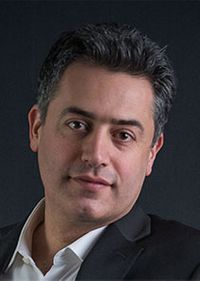
Dr. Avesta Sasan
George Mason University
Dr. Avesta Sasan is an Associate Professor in the Electrical and Computer Engineering department at George Mason University. His research spans low power design and methodology, hardware security, accelerated computing, approximate computing, near-threshold computing, neuromorphic computing, and the Internet of Things (IoT) solutions. He received his M.Sc. and his Ph.D. in Electrical and Computer Engineering from the University of California Irvine in 2006 and 2010 respectively.
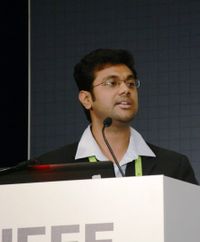
Dr. Anirban Sengupta
Indian Institute of Technology, Indore
Dr. Anirban Sengupta is an Associate Professor in Computer Science and Engineering at Indian Institute of Technology (I.I.T) Indore. He received a Ph.D. in Electrical and Computer Engineering at Ryerson University, Toronto, Canada. He has authored more than 230 Publications. He received the 2018 IEEE Chester Sall Memorial Award. He is an elected Fellow of IET and British Computer Society.
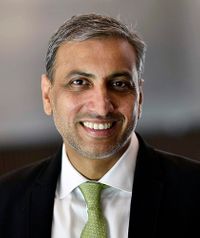
Dr. Ankur Srivastava
University of Maryland, College Park
Ankur Srivastava, the seventh director of the Institute for Systems Research, has a joint appointment in the Electrical and Computer Engineering Department and ISR at University of Maryland. Dr. Srivastava received his B.Tech in Electrical Engineering from Indian Institute of Technology Delhi in 1998 and PhD in Computer Science from UCLA in 2002. He was awarded the prestigious Outstanding Dissertation Award from the CS department of UCLA in 2002. His primary research interests lie in the field of high performance, low power and secure electronic systems and applications such as computer vision, data and storage centers and sensor networks.
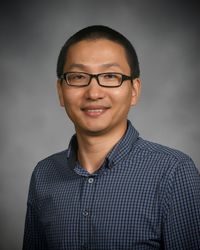
Dr. Wujie Wen
Lehigh University
Wujie Wen is an assistant professor in the department of Electrical and Computer Engineering at Lehigh University. He received his Ph.D. from University of Pittsburgh in 2015, under the supervision of Dr. Yiran Chen (Now in Duke Univerity). He earned his B.S. and M.S. degrees in electronic engineering from Beijing Jiaotong University and Tsinghua University, Beijing, China, in 2006 and 2010, respectively. His research interests include deep learning hardware acceleration/security/application, neuromorphic computing, electronic design automation (EDA), and circuit-architecture design for emerging memory technologies etc.
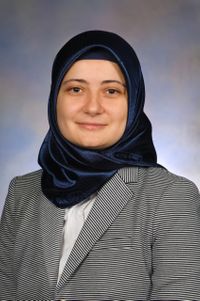
Dr. Tuba Yavuz
University of Florida
Dr. Yavuz is an Assistant Professor in the Electrical and Computer Engineering (ECE) Department at the University of Florida. Her research aims to improve reliability and security of systems using formal methods and program analysis. Before joining the ECE Department, she has worked as a Research Scientist at the Computer and Information Sciences and Engineering (CISE) Department at UF between 2004 and 2014. She has received her Ph.D. in computer science from the Computer Science Department of University of California, Santa Barbara in 2004.
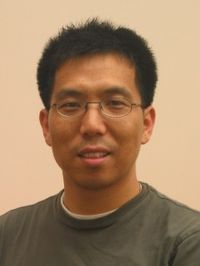
Dr. Shaojie Zhang
University of Central Florida
Dr. Shaojie Zhang is a Professor in the Department of Computer Science in the University of Central Florida. He received his Ph.D degree in Computer Science from the University of California, San Diego in 2007. Before that, Dr. Zhang received his M.Eng degree from the Nanyang Technological University in 2001 and B.S degree from the Peking University in 1997. His research interests mainly focus on Computational Biology and BioInformatics and Theory of Computing, Algorithms and Quantum Computing.
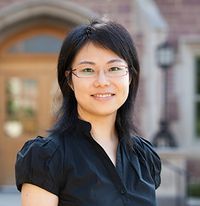
Dr. Xuan 'Silvia' Zhang
Washington University in St. Louis
Professor Zhang joined the faculty at Washington University in St. Louis in 2015. She earned her doctorate in electrical and computer engineering at Cornell University in 2012. Professor Zhang’s research interests span the fields of IC design/VLSI, computer architecture, robotics, and artificial intelligence. She is especially curious about how to build, miniaturize, and optimize autonomous systems for performance, reliability, security, and energy efficiency, with diverse applications in cyber-physical systems (CPS), Internet of Things (IoT), and autonomous robotics.